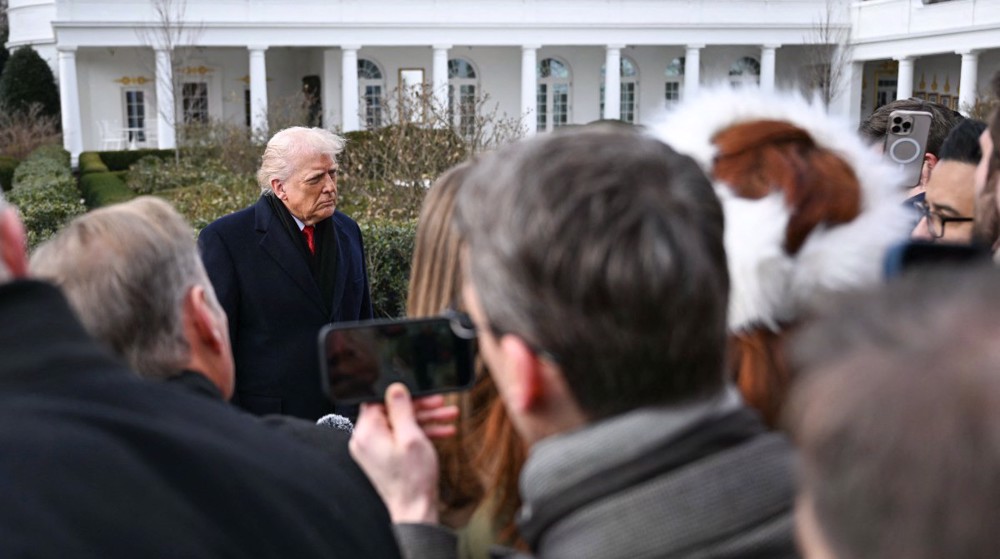Germany concerned about spread of Wahhabism in Kosovo
The German government has expressed concern over the spread of Wahhabism, promoted by the Saudi regime, in Kosovo and other areas in the region.
Wahhabism is a radical ideology dominant in Saudi Arabia and freely preached by clerics supported by the regime in Riyadh. The ideology has been a source of inspiration for terrorists worldwide.
Daesh and other Takfiri terrorist groups take advantage of Wahhabism to declare people of other faiths "infidels." The idea provides a justification for the terrorists to kill those individuals.
Sevim Dagdelen, a Left Party lawmaker, said on Wednesday it was "scandalous" that hard-line Saudi preachers were active in Kosovo under the eyes of Western peacekeepers. Sources within the government have confirmed that argument.
According to the German government, donors from Saudi Arabia and certain other Arab monarchies of the Persian Gulf are reportedly funding communities in Kosovo to fuel extremism.
Kosovo has been a major source of recruitment for Takfiri terrorist groups such as Daesh, which is mainly active in Syria and Iraq.
According to a recent study by the International Center for Counter-Terrorism based in The Hague, four European Union member states of Belgium, Britain, France and Germany have been branded as the largest source of European militants fighting in Iraq and Syria. The four European countries contributed to militancy in the two Arab countries by having 2,838 of their nationals travel to those countries to join terror groups, the study said.
The center, which has used data provided by 26 EU countries, said about 30 percent of European militants have returned home and about 14 percent were killed on the battlefield. It said 17 percent of the militants were women, and up to 23 percent were converts to Islam.
Berlin says there does not appear to be a "broad movement away from traditional liberal interpretation of Islam toward a Wahhabi interpretation" in Kosovo, the Associated Press reported.

In February, Belgium also expressed concern about the matter. A report by De Standaard newspaper said Belgium's OCAM national crisis center had warned about Wahhabism being preached in an increasing number of mosques in the country with financial support from Riyadh. The report also said Saudi Arabia had initiated a "generous" grant system for foreign students who are later encouraged to indoctrinate people in Belgium and other countries with Wahhabism.
In April 2016, the Telegraph newspaper said Wahhabi preachers were spreading extremism across Bosnia. Bosnian parents blamed Wahhabi followers for recruiting their sons to fight alongside militants in battlefields in the Middle East.

Estimates say some 30,000 foreign militants from about 104 countries were fighting in Iraq and Syria in a time span of one year beginning from September 2014. European militants are likely to return to their home countries and, battle-hardened, plot to carry out attacks there.
Back in November 2015, Daesh claimed responsibility for a series of attacks in the French capital, Paris, where a total of 130 people were killed. Investigations revealed that the perpetrators were mostly based in Belgium.
In March 2016, two bomb attacks in Belgium's capital, Brussels, killed at least 14 people and left nearly 100 people wounded.
VIDEO | Press TV's news headlines
Hamas says it fulfilled all its obligations under Gaza ceasefire deal
Hezbollah condemns Israel's ‘treacherous assassination’ of Al-Housh Mosque imam
Israeli woman shocked after being listed as ‘dead’ in recent Iran riots
VIDEO | IAEA and its policies
VIDEO | Crackdown at home, lecturing abroad
Israel clearing northern Gaza land for settlements: Report
Gaza deadliest place for journalists and aid workers: UNRWA chief










 This makes it easy to access the Press TV website
This makes it easy to access the Press TV website